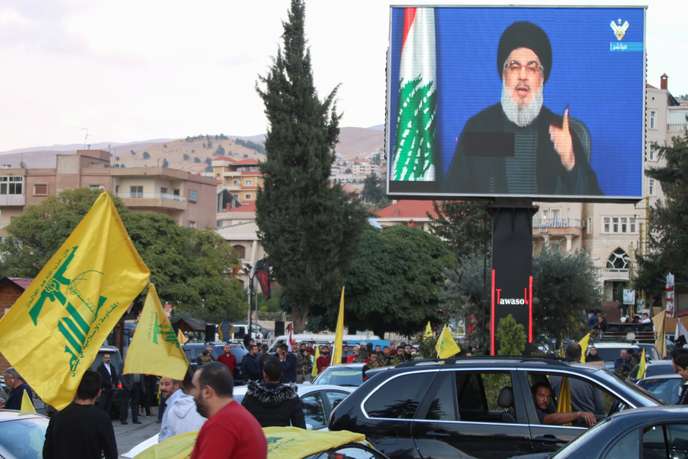Clashes erupted Friday in central Beirut between supporters of the Shiite movement and demonstrators demanding the departure of the entire political class.

Hezbollah leader Hassan Nasrallah stepped out of his silence Friday (October 25th) on a Shia-like television channel to warn hundreds of thousands of Lebanese who have been protesting against the political class for the past nine days. a new civil war. The religious leader of the pro-Iranian party, accused like the other parties of having impoverished the country by favoring the corruption, considered during this speech that a power vacuum "Would lead to the collapse of the country".
Even before the speech of Mr. Nasrallah, clashes erupted Friday in central Beirut between supporters of the Shiite movement and demonstrators. Dozens of Hezbollah militants rushed in the afternoon on protesters grouped by thousands on the square Riad El Solh, in the heart of the capital. Several people were slightly injured, pushing the riot police to deploy to separate the two camps. Incidents of the same type had already occurred at night.
"Closed because of the country's repair"
The militants of the pro-Iranian Shiite party, more and more visible for two days in the streets, are outraged by the slogans targeting their leader Hassan Nasrallah, along with the other leaders. The protesters are calling for the resignation of Saad Hariri's government, which includes Hezbollah and the Amal movement, which includes Speaker Nabih Berri. Cries of "Long live Nasrallah" have thus sounded to respond to the flagship slogan of the challenge, "All means all", in reference to their demand for a departure from the entire political class, considered incapable of finding solutions to the economic crisis.

On Friday, Hassan Nasrallah said his party would not accept the resignation of President Michel Aoun or the government. He insinuated, moreover, that there was an external manipulation to the challenge, depriving him of his character. "Spontaneous from the beginning", and lamented attempts to recover the movement by local parties. The Hezbollah leader also urged the Lebanese not to block the roads, as has been the case since the beginning of the protest. The day after an address to the nation of President Michel Aoun deemed unanimously disappointing, dozens of new barricades have appeared on the roads, strengthening the paralysis of the country.
The blocking of the axis linking Beirut to the north of the country has been maintained. Large colored tarpaulins have even been installed to protect the protesters from the rain and allow some to spend the night. "Closed because of the country's repair"Some of the billboards are reminiscent of the number one claim of this unprecedented protest movement: the immediate replacement of a political class that has remained virtually unchanged since the end of the civil war (1975-1990).




